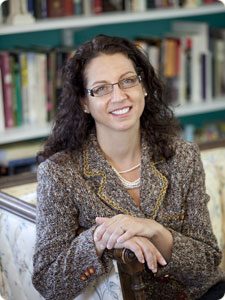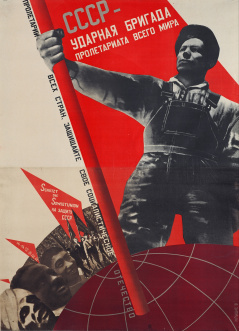Join us for our (Re)Thinking Yugoslav Internationalism Conference in Graz, 29 September – 1 October
Posted on 20 September, 2016 in1989 after 1989 End of Yugoslavia Globalisation Rethinking 1989 Socialism

Coinciding with the 55th anniversary of the Belgrade summit and the foundation of the Non-Aligned Movement, this conference will address a range of questions relating to the wealth of diplomatic, economic, intellectual and cultural encounters and exchange between 1945 – 1990, both within the Non-Aligned Movement, across the socialist world and with the developed countries. It will map the history of Yugoslavia’s global engagements not only as a subject associated with political and diplomatic
history, but also as a broader societal and cultural project.
This is a collaborative conference between ourselves and the Centre of Southeast European Studies at the University of Graz.
WHERE:
University of Graz
Meerscheinschlössl / Festsaal
Mozartgasse 3
8010 Graz
→University of Graz campus map
WHEN:
29 September 16:00 – 19:00 1 October
KEYNOTE SPEAKERS:
 Professor Kristen Ghodsee
Professor Kristen Ghodsee
Bowdoin University, USA
 Professor James Mark
Professor James Mark
University of Exeter & 1989 after 1989, UK
Human Rights after 1945 Conference Report Published
Posted on 29 June, 2016 in1989 after 1989 Eastern Europe Globalisation Human Rights Post Socialism Rethinking 1989 Socialism

The conference Human Rights after 1945 in the Socialist and Post-Socialist World took place on the 3 – 5 March 2016 at the German Historical Institute, Warsaw. It was a collaborative conference between 1989 after 1989; the German Historical Institute Warsaw; Georg-August University of Göttingen and the London School of Economics. The aim of the conference was to highlight the role and historical agency of the socialist world in the history of human rights.
The conference report is now available on our conference pages and on Geschichte Transnational. It summarises papers presented across 6 panels covering topics such as state socialism, human rights and globalisation; how human rights is defined internationally; state socialist conceptualisation of rights and human rights; socialist foreign policy; transnational movements and flows; and political dissent in relation to the global history of human rights.
The importance of analyzing vernacular human rights, i.e. analyzing when and how people used human rights languages [5], was one of the leitmotifs of the conference. The issue of teleology and normativity in historical human rights research was another major topic. Consequently, many papers presented stories of failures that contradict positivist narratives and challenge policy-orientated narratives of democratic transition. Parallel to transnational and international human rights history, the role of the state in human rights history was another key issue of the conference. Bringing the state back in, human rights can also be seen as an element of legal history – a promising approach embedding the highly normative notion of human rights in a wider legal history context. This conference brought together scholars working on various regions and actors in a truly fruitful manner. It linked different approaches and perspectives on the history of human rights in a way that contributed to an urgently needed, more complex understanding of the socialist world’s role in human rights history.
Read the full conference report.
[Top]Workshop: Labour Mobility in the Socialist World and its Legacies, Oxford 19-20 May 2016
Posted on 10 May, 2016 inEastern Europe End of Yugoslavia Globalisation Post Socialism Socialism

Interested in hearing Professor James Mark keynote speech on socialist globalization and the research work of Dr Ljubica Spaskovska on Yugoslav investment construction and labour mobility? Then why not come along to a workshop hosted by the University of Oxford on the 19-20 May. Papers given at the workshop will also present research work taking place as part of the Socialism Goes Global project funded by the Arts and Humanities Research Council and the University of Exeter.
WORKSHOP: LABOUR MOBILITY IN THE SOCIALIST WORLD AND ITS LEGACIES
19-20 May 2016
European Studies Centre, University of Oxford
Workshop Synopsis
Almost 30 years after the crumbling of the state-socialist regimes in Eastern Europe, the conceptualisation of the state-socialist era as a time of immobility and isolation continues to linger. This portrayal utterly misses the robust flows of people, technology, goods, knowledge and capital that took place between socialist states worldwide. Recently, scholars from a variety of disciplines have begun to map these socialist circulations. The planned workshop will build on these pioneering efforts with the goal of furthering the understanding of these complex flows – particularly those involving workers and technical staff – within the erstwhile socialist world.
Some of the socialist circulations, such as the stays by thousands of university students from Africa, Asia and Latin America in various Eastern European countries, have already received some scholarly attention. However, other forms of mobility, such as state-socialist labour migrations, remain largely unexplored. Yet, examples abound: the Vietnamese government dispatched thousands of its teachers, engineers, agronomists, doctors and planners to Madagascar, Guiney, Algeria, Angola and Mozambique; Cuba sent both its intelligentsia and its blue-collar workers to Europe for training and work and simultaneously provided secondary and university education to 30,000 people from the sub-Saharan Africa; Vietnamese, Cubans and Mozambicans travelled for vocational training or as contract workers to the GDR, Czechoslovakia, Bulgaria, the Soviet Union, Hungary and Poland; many engineers, doctors, and military officers from eastern Europe travelled in the opposite direction to help build power stations, cement factories or hospitals and to train local personnel for them on site. Labour mobility took place within regions too: Hungarians and Poles, for instance, crossed the border daily or weekly to work in Czechoslovak companies. In short, the world of socialist labour mobility was complex one: It was multidirectional, crossed local borders, spanned world regions, was simultaneously an economic, political and cultural phenomenon.
We also wish to address the contemporary incarnations and the legacy of these past circulations. Business and trade links still follow some of the earlier patterns of socialistera mobility. Some of the experts and students who were trained and socialised in a broader socialist world of the late Cold War continue to hold high positions in many countries and thus shape these countries global engagements today.
PRELIMINARY PROGRAMME
Thursday, 19 May 2016
Arrival, meet & greet, light lunch served at the European Studies Centre from 12:15
13:00–13:15: Opening remarks: Alena Alamgir
Panel 1 – 13:15–15:15 – Labour mobility between the Soviet centre and peripheries (Chair TBA)
- Malika Bahovadinova: “Building the state and the proletariat on a Soviet construction site in Tajikistan.”
2. Kateryna Burkush: “On the forest front: Mechanisms of seasonal labour migration under late socialism (1960s–1980s). The case of Western Ukraine.”
3. Leyla Sayfutdinova: “Mapping the mobility of Azerbaijani Soviet engineers: linking West and East?”
Break 15:15-15:35
Panel 2 – 15:35–16:45 – Technological flows and exchanges (Chair TBA)
- Ljubica Spaskovska: “‘Constructing a better world’ – Yugoslav investment construction and labour mobility in the developing world 1960-1990”
2. Patryk Babiracki: “Labour mobility at the Poznań International Trade Fair, 1940s– 1960s” Break 16:45–17:05 17:05–18:15: “Mini-keynote” on labour migration by Andreas Eckert, roundtable discussion
Friday, May 20th
Panel 3 – 9:00–11:00 – Overseas blue-collar workers in state-socialist Central Europe (Chair TBA)
- Alena Alamgir: “’They knit sweaters and refuse to follow foreman’s orders’: Vietnamese female workers’ labour disputes in 1980s Czechoslovakia”
2. Balint Tolmar: “Socialist assistance under a regime of austerity: The case of Cuban temporary workers in Hungary, 1980–1989”
3. Marcia Schenck: “Legacies of Mozambican and Angolan labour migration to the GDR: ‘East-algia’ and continuing protest“
Break 11:00–11:20
Panel 4 – 11:20–12:30 – Expert migrations (Chair TBA)
- Klejd Këlliçi: “Chinese specialist in Albania 1961-1978: From brothers and heroes to villains”
2. Agnieszka Sadecka: “Polish experts in India as represented in works of nonfiction from 1960s and 1970s”
12:30–13:30: Lunch
13:30–14:40: “Mini-keynote” on socialist globalization by James Mark, roundtable discussion, summary, and conclusion of the workshop
For more information about this event please contact Catherine Devenish: c.devenish@exeter.ac.uk or email european.studies@sant.ox.ac.uk
Socialism Goes Global website: http://socialismgoesglobal.exeter.ac.uk/
[Top]Human Rights after 1945 in the Socialist and Post-Socialist World Conference Programme
Posted on 29 February, 2016 in1989 1989 after 1989 Cold War Globalisation Human Rights Socialism

March 3-5, 2016
German Historical Institute Warsaw
Conference Room, 3rd Floor
Organizers:
German Historical Institute Warsaw
1989 after 1989: Rethinking the Fall of State Socialism in Global Perspective
Georg-August University of Göttingen
Synopsis
 As both human rights and globalization have emerged as dynamic fields of historical and sociological research, the “socialist world” is relegated to a supporting role in the triumph of Western capitalism and liberal democracy. The aim of this conference is to question established narratives that have ignored or downplayed the role of socialist ideas, practice, and experts—be they state officials, loyal intellectuals or dissident activists — in the development of international human rights ideas, discourses, and systems in the post-war era. With a geographic scope that covers the Soviet Union, the Eastern Bloc, Yugoslavia and China, we hope to show that the socialist world did not just react passively to Western human rights politics, but was a vital participant in the production of global human rights with legacies that continued past the revolutions of 1989. By examining the socialist contribution to the evolution of human rights, we hope to contribute to revising standard narratives of globalization that focus exclusively on the perceived winners of these processes.
As both human rights and globalization have emerged as dynamic fields of historical and sociological research, the “socialist world” is relegated to a supporting role in the triumph of Western capitalism and liberal democracy. The aim of this conference is to question established narratives that have ignored or downplayed the role of socialist ideas, practice, and experts—be they state officials, loyal intellectuals or dissident activists — in the development of international human rights ideas, discourses, and systems in the post-war era. With a geographic scope that covers the Soviet Union, the Eastern Bloc, Yugoslavia and China, we hope to show that the socialist world did not just react passively to Western human rights politics, but was a vital participant in the production of global human rights with legacies that continued past the revolutions of 1989. By examining the socialist contribution to the evolution of human rights, we hope to contribute to revising standard narratives of globalization that focus exclusively on the perceived winners of these processes.
Conference Programme
Thursday, 3 March 2016
14:00-14:30
Welcoming Address
Ruth LEISEROWITZ (German Historical Institute Warsaw)
14:30-15:30
Introductory Panel: State Socialism, Human Rights and Globalization: In Search of a New Narrative
Hella DIETZ (Georg-August University of Göttingen)
Ned RICHARDSON-LITTLE (University of Exeter)
Robert BRIER (London School of Economics)
15:30-16:00 Coffee break
16:00-18:00
Panel 1: Defining Human Rights Internationally
Steven JENSEN (Danish Institute for Human Rights)
Defining the Social in the Global: Social Rights, UN Diplomacy and the Emergence of International Non-Discrimination Norms and Politics, 1950-1960
Alexander OSIPOV (European Centre for Minority Issues)
The Soviet Union’s Involvement in the Establishment of the European Minority Rights Regime
Discussant: Arnd BAUERKÄMPER (Free University Berlin)
19:00 Conference Dinner
Friday, 4 March 2016
09:00-11:00
Panel 2: State-Socialist Conceptions of Rights and Human Rights
Jennifer ALTEHENGER (King’s College London)
Rights, Not Human Rights: Communist China’s National Constitution Discussion, 1954
Michal KOPEČEK (Institute for Contemporary History, Prague and Charles University, Prague)
Socialist Conceptions of Human Rights and its Dissident Critique
Todor HRISTOV (University of Sofia)
Rights to Weapons: Human Rights as a Resource in Workplace Conflicts in Late Socialist Bulgaria
Discussant: Paul BETTS (Oxford University)
11:00-11:30 Coffee Break
11:30-13:00
Panel 3: Tolerance, Difference, and Rights under Socialism
Ivan SABLIN (University of Heidelberg)
Illusive Tolerance: Buddhism in the Late Soviet State
Zhuoyi WEN (Hong Kong Institute of Education)
Contesting Cultural Rights in Post-socialist China
Discussant: tba
13:00-14:30 Lunch break
14:30-16:00
Panel 4: Human Rights as Socialist Foreign Policy
Sebastian GEHRIG (Oxford University)
The Fifth Column of the Third World? The East German Quest for International Recognition through UN Rights Discourses
Jens BOYSEN (German Historical Institute Warsaw)
Polish Engagement in the United Nations as a Tool for Justifying Communist Rule in Poland and Gaining Leeway in the Warsaw Pact
Discussant: Robert BRIER
(London School of Economics)
16:00-16:30 Coffee Break
16:30-18:00
Panel 5: Transnational Movements and Flows
Christie MIEDEMA (University of Amsterdam)
Negotiating Space for International Human Rights Activism: Amnesty International in Eastern Europe before 1989
Rósa MAGNÚSDÓTTIR (University of Aarhus)
Soviet-American Intermarriage: Transnational Love and the Cold War
Discussant: James MARK (University of Exeter)
19:00 Dinner for the conference participants
Saturday, 5 March 2016
9:00-11:00
Panel 6: Dissent and Human Rights
Simone BELLEZZA (University of Eastern Piedmont)
The Right to Be Different: Ukrainian Dissent and the Struggle Against a Global Consumerist Cultural Standardization
Hermann AUBIÉ (University of Turku)
Between Loyalty and Dissent: Revisiting the History of Human Rights in China Through the Discourse of Chinese Intellectuals and Dissidents
Zsófi a LÓRÁND (European University Institute, Florence)
Feminist Dissent, Activism for the Elimination of Violence against Women, and the Human Rights Discourse in Yugoslavia in the 1970s-1980s
Discussant: Celia DONERT (University of Liverpool)
11:00-11:30 Coffee Break
11:30-13:00
Concluding Panel: The Place of State Socialist Societies in the Global History of Human Rights
Paul BETTS (Oxford University)
James MARK (University of Exeter)
Celia DONERT (University of Liverpool)
Call for Papers: (Re)Thinking Yugoslav Internationalism – Cold War Global Entanglements and their Legacies
Posted on 14 December, 2015 in1989 after 1989 Cold War End of Yugoslavia Globalisation Rethinking 1989 Socialism

Graz, Austria
Centre for Southeast European Studies, University of Graz and the University of Exeter
30 September – 1 October 2016
Call for Papers Deadline: 28 February 2016
(Re)Thinking Yugoslav Internationalism – Cold War Global Entanglements and their Legacies
For more than forty years, Yugoslavia was one of the most internationalist and outward looking of all socialist countries in Europe, playing leading roles in various trans-national initiatives – principally as central participant within the Non-Aligned Movement – that sought to remake existing geopolitical hierarchies and rethink international relations. Both moral and pragmatic motives often overlapped in its efforts to enhance cooperation between developing nations, propagate peaceful coexistence in a divided world and pioneer a specific non-orthodox form of socialism.
Although the disintegration of socialist Yugoslavia has received extensive treatment across a range of disciplines, the end of Yugoslavia’s global role and the impacts this had both at home and abroad, have received little attention. Coinciding with the 55th anniversary of the Belgrade summit and the foundation of the Non-Aligned Movement, this conference seeks to open up a range of questions relating to the wealth of diplomatic, economic, intellectual and cultural encounters and exchange between 1945 – 1990, both within the Non-Aligned Movement, across the socialist world and with the developed countries. It would map the history of Yugoslavia’s global engagements not only as a subject associated with political/diplomatic history, but also as a broader societal and cultural project. Important witnesses involved in those exchanges and alliances will also be invited to share their experiences.
We welcome papers from different disciplines and from diverse perspectives, whether dealing with aspects of Cold War international cooperation, development, Yugoslavia’s global role, or the ‘global’ Cold War from the perspective of the developing world and the ‘global South’. We particularly encourage proposals which would reflect on:
- the roots of Yugoslav internationalism and how it was understood in cultural/economic/social as well as political/diplomatic terms;
- the contours of Yugoslav diplomacy and the ways Yugoslav elites conceptualised their global role;
- the role of Yugoslavia in the United Nations, its agencies and other international organisations as the fora for global encounters and in particular the attempts at tackling global inequality and alternative development;
- the relationship between Yugoslavia, the different liberation movements and the newly emerging independent nations in the ‘global South’ (including cultural diplomacy, labour migration, individual travel);
- the realities and challenges of foreign trade, investment construction and economic cooperation;
- the ways international engagements reshaped aspects of political, economic or cultural life back in Yugoslavia;
- the role and significance of the Non-Aligned Movement during the Cold War and today;
- the international impact of the end of Yugoslavia and the collapse of her global role;
- the legacies and new understandings of Yugoslavia’s global role.
Abstracts of 300-500 words, together with an accompanying short biographical note should be submitted to Natalie Taylor (N.H.Taylor@exeter.ac.uk) by 28 February 2016.
Funding opportunities for travel and accommodation are available, but we ask that potential contributors also explore funding opportunities at their home institutions.
This event is kindly supported by the Centre for Southeast European Studies and the Leverhulme Trust-funded project 1989 after 1989: Rethinking the Fall of State Socialism in Global Perspective at the University of Exeter.
[Top]Call for Papers: Human Rights after 1945 in the Socialist and Post-Socialist World
Posted on 12 October, 2015 in1989 after 1989 Communism Globalisation Human Rights Post Socialism Socialism

German Historical Institute, Warsaw
March 3 – 5, 2016
Call for Papers Deadline: 27 November 2015
Human Rights after 1945 in the Socialist and Post-Socialist World
Histories of late twentieth century global change have focused on its perceived winners on a macro-scale: democratic capitalism, global markets and individual rights. In such formulations, the “socialist world” and its history appear irrelevant to understanding global processes and unable to inform liberal Western democratic societies.
The global rise of human rights might look like a particularly striking case in point. The formal guarantees of rights in socialist societies, after all, seemed to have no substantial effect on these societies’ political and legal practices, and the debate on civil society in “the West” which east European human rights activists had inspired during the 1980s, did not survive socialism’s fall in that region.
In this conference, we want to question those narratives. Actors from the socialist world – be they state officials, loyal intellectuals or dissident activists – actively participated in international conflicts over the meaning of democracy, economic freedom, religious liberty and national self-determination in the post-war period. Socialist officials took part in drafting the U.N. covenants of 1966, in turning South African apartheid or repression in Chile into global causes célèbres or in promoting women’s rights. African socialists shaped human rights discourses by blending them with the struggle for self-determination, while Latin American activists grafted human rights to their Marxist ideas. Chinese Communists joined traditional ideas of cultural difference with Leninist ideology to create a distinct human rights discourse. Dissident intellectuals, on the other hand, did not necessarily take the West’s side in the Cold War when they criticized socialist realities, but developed innovative human rights vernaculars deeply shaped by their unique contexts. In sum, the “socialist world” did not just react passively to Western human rights politics, but was a vital participant in the story of the production of global human rights.
This conference seeks to explore how the socialist world can be written into the broader global narratives of the rise of human rights in the 20th century, and even revise these narratives. Our understanding of the “socialist world” is deliberately inclusive. It entails the socialist systems of eastern Europe, Eurasia, Africa, Southern and East Asia as well as socialist and Communist parties and movements more broadly, and anti-colonial or anti-dictatorial movements in the Global South.
We welcome papers from different disciplines and from diverse perspectives, whether dealing with official discourses, state policies, right experts, or national or transnational political movements.
We particularly encourage proposals on the following topics:
- rights cultures within socialist societies, including reflections on the global context of their construction;
- the contribution of socialist elites, experts and social groups to the global rise of human rights;
- connections across the socialist world in the production of conceptions of rights, including reflections on the role of international organizations or transnational movements;
- the importance of rights discourses for socialist regimes and movements in establishing legitimacy at home and abroad;
- the use of rights discourses by opposition movements, and the relationship between official/ alternative rights movements within socialist societies;
- the legacy of rights discourses within socialist and post-socialist societies today;
- comparisons, and connections between, the production of rights ideas in the socialist and non-socialist worlds;
- rethinking the role of rights and the collapse of socialist states;
- broader reflections on writing the socialist world into the history of rights;
- broader reflections on how these stories contribute to the rethinking of the story of cultural and political globalization.
This conference is the first in a series of meetings exploring how processes and practices that emerged from the socialist world shaped the re-globalized world of our times. Throughout, the legacies of this socialist engagement with globalising processes in the socialist and post-socialist world will also be an important point of interest.
Please send a brief abstract of 300-500 words, as well as a brief CV, by November 27, 2015, to Natalie Taylor at the University of Exeter (N.H.Taylor@exeter.ac.uk ). All organizational questions can be sent to Natalie Taylor. Academic queries should be sent to Hella Dietz (Hella.Dietz@sowi.uni-goettingen.de ).
Download the Call for Papers: Call for Papers Human Rights after 1945
Substantial funding opportunities for travel and accommodation are available, but we ask that potential contributors also explore funding opportunities at their home institutions.
This event is kindly supported by the German Historical Institute in Warsaw and the Leverhulme Trust-funded project 1989 after 1989: Rethinking the Fall of State Socialism in Global Perspective at the University of Exeter.
[Top]Global Socialism and Post Socialism Workshop Report
Posted on 8 July, 2015 in1989 after 1989 Globalisation Post Socialism Rethinking 1989 Socialism

Held May 13, 2015 at The University of Exeter
Report by James Mark, Nelly Bekus, Anna Calori, Raluca Grosecu, Ned Richardson-Little, and Ljubica Spaskovska
While the topic of globalization has emerged as rapidly growing field in recent years, the role of the socialist world is often neglected or seen as passive or unengaged in these processes. This workshop, hosted by 1989 after 1989: Rethinking the Fall of State Socialism in Global Perspective research group, sought to challenge these narratives by examining the myriad engagements of the socialist world with the global. The presentations proposed new methodological and theoretical means of grappling with how late socialism fits into the larger narrative of globalization, examined the spaces in which processes of globalization occurred in the socialist world, and analyzed the long-term effects of these developments after 1989 and the collapse of state-socialism.
 Tobias Rupprecht (University of Exeter) opened the first panel – Approaches to Globalisation and The Socialist World – providing a broad introduction to the themes of the workshop. He explored how current literature on globalisation is still often shaped by the values of the 1990s, and how, within this, the socialist world is most commonly presented simply as a victim of globalising forces. He then demonstrated the various ways in which the socialist world provided templates for ‘alternative globalisations’, and also acted as co-producer of some of the aspects of the globalised world we experience today.
Tobias Rupprecht (University of Exeter) opened the first panel – Approaches to Globalisation and The Socialist World – providing a broad introduction to the themes of the workshop. He explored how current literature on globalisation is still often shaped by the values of the 1990s, and how, within this, the socialist world is most commonly presented simply as a victim of globalising forces. He then demonstrated the various ways in which the socialist world provided templates for ‘alternative globalisations’, and also acted as co-producer of some of the aspects of the globalised world we experience today.
 Bogdan Iacob (New Europe College, Bucharest) presentation – Negotiating the National. Romania, Globalization, and International Congresses of Historical Sciences (1970-1980) – analysed the responses of the Romanian socialist government to the rising web of interdependencies in 1970s, which would come to be known as globalization in the next decade. He then tested the implementation of this position for the case of the country’s engagement with International Congresses of Historical Sciences, particularly those between 1970 and 1980 – in Moscow, San Francisco, and Bucharest. Focusing on the Bucharest conference of 1980, the Iacob argued that one can identify a dichotomous approach to globalization in the case of Romania. On the one hand, the country was fully engaged with supra-, inter-, and non- governmental institutions during the global Cold War. On the other hand, the internationalization of Romanian state socialism also meant showcasing components of local modernity. The presentation underlined that the Romanian case of socialism going global is a cautionary tale. It is the story of a regime engrossed in the global encounters of the 1960s and 1970s that reaches, in 1980s, a final phase of systemic insulation and exacerbated essentialism. For the local, state socialist globalization ultimately meant carving pericentric frameworks highly dependent into very specific Cold War contexts.
Bogdan Iacob (New Europe College, Bucharest) presentation – Negotiating the National. Romania, Globalization, and International Congresses of Historical Sciences (1970-1980) – analysed the responses of the Romanian socialist government to the rising web of interdependencies in 1970s, which would come to be known as globalization in the next decade. He then tested the implementation of this position for the case of the country’s engagement with International Congresses of Historical Sciences, particularly those between 1970 and 1980 – in Moscow, San Francisco, and Bucharest. Focusing on the Bucharest conference of 1980, the Iacob argued that one can identify a dichotomous approach to globalization in the case of Romania. On the one hand, the country was fully engaged with supra-, inter-, and non- governmental institutions during the global Cold War. On the other hand, the internationalization of Romanian state socialism also meant showcasing components of local modernity. The presentation underlined that the Romanian case of socialism going global is a cautionary tale. It is the story of a regime engrossed in the global encounters of the 1960s and 1970s that reaches, in 1980s, a final phase of systemic insulation and exacerbated essentialism. For the local, state socialist globalization ultimately meant carving pericentric frameworks highly dependent into very specific Cold War contexts.
The second panel – The Socialist World, Trade, and Globalisation – began with James Mark’s  (University of Exeter) presentation, “Between the Eastern Bloc and the East Asian ‘Tigers’: The Opening Up between Hungary and South Korea 1970-1995.” Mark used the opening up between Hungary and South Korea to explore the ways in which experts in a socialist state imagined the operation of the world economy in the late Cold War. He showed how reform economists in Hungary, influenced by World Systems Theory, re-imagined their country’s role in the world economy as semi-peripheral. This then led them to an interest in the Asian “Tigers” as examples of successful integration into the world economy by formerly semi-peripheral countries. He explored these experts’ new prescriptions for the Hungarian economy from this perspective, and the fascination with South Korea amongst political and economic elites in the last years of state socialism.
(University of Exeter) presentation, “Between the Eastern Bloc and the East Asian ‘Tigers’: The Opening Up between Hungary and South Korea 1970-1995.” Mark used the opening up between Hungary and South Korea to explore the ways in which experts in a socialist state imagined the operation of the world economy in the late Cold War. He showed how reform economists in Hungary, influenced by World Systems Theory, re-imagined their country’s role in the world economy as semi-peripheral. This then led them to an interest in the Asian “Tigers” as examples of successful integration into the world economy by formerly semi-peripheral countries. He explored these experts’ new prescriptions for the Hungarian economy from this perspective, and the fascination with South Korea amongst political and economic elites in the last years of state socialism.
With his presentation, “Trading Internationalism: Rethinking Cold War Narratives through Sino-Middle East Relations, 1950s-70s,” Sam Zhiguang (University of Exeter) challenged the idea that international trade should be conceptualized solely in terms of commercial value. He argued that both Western economic models of comparative advantage or concepts such as Socialist division of labour did not capture the ideological and cultural meaning of trade in the People’s Republic of China during the Cold War. According to Chinese doctrine, establishing international unity was essential to national unity. One of the key means of fostering solidarity with the Third World was through the exchange of trade delegations. Through the lens of Sino-Middle East relations, he contended that while these exchanges did not often lead to significant commercial activity, this was not their primary goal. Chinese enthusiasm for engagement with the Middle East was not motivated by profit, but a more complex ideological understanding of global unity as a proxy for the wellbeing of China itself under Communist rule.
Anna Calori’s (PhD student, University of Exeter) presentation titled “Privatisation Reforms and the Global Market: Fragmenting the Workforce in Late-Socialist Bosnia-Hercegovina” explored the rationale behind the late 1980s economic reforms in Yugoslavia and their disruptive effects within the workplace of large, exporting companies. Engaging with primary sources such as factory bulletins and internal journals, Calori provided an analysis of discourses and debates around what was presented as a necessary change in the Yugoslav economic model of workers’ self-management. Responses to the urgencies of competitiveness on the global market meant a re-conceptualisation of the (post) socialist worker based on new exclusionary categories of merit and efficiency. This deeply affected the industrial workplace, exacerbating the already existing skills divisions and allowing for a further fragmentation of the workforce in the critical moments leading to Yugoslavia’s disruption.
Calori’s (PhD student, University of Exeter) presentation titled “Privatisation Reforms and the Global Market: Fragmenting the Workforce in Late-Socialist Bosnia-Hercegovina” explored the rationale behind the late 1980s economic reforms in Yugoslavia and their disruptive effects within the workplace of large, exporting companies. Engaging with primary sources such as factory bulletins and internal journals, Calori provided an analysis of discourses and debates around what was presented as a necessary change in the Yugoslav economic model of workers’ self-management. Responses to the urgencies of competitiveness on the global market meant a re-conceptualisation of the (post) socialist worker based on new exclusionary categories of merit and efficiency. This deeply affected the industrial workplace, exacerbating the already existing skills divisions and allowing for a further fragmentation of the workforce in the critical moments leading to Yugoslavia’s disruption.
 In the third panel, “Spaces of Globalisation in Eastern Europe” Ljubica Spaskovska (University of Exeter) examined “Socialist global citizenship: the case of Yugoslavia.” Spaskovska’s presentation addressed a range of “spaces” of global encounters and cooperation through the lens of “global citizenship.” In different ways related to the United Nations, the Non Aligned Movement, the International Centre for Public Enterprises in Developing Countries and the post-1963 earthquake development plan for Skopje were some of those spaces of global citizenship where ideas that revolved around (equitable) development, anti-colonialism, fairer terms of trade and fostering ‘active peaceful coexistence’ gained ground. Socialist Yugoslavia’s “globally imagined citizenship” was a chartered foreign policy course that produced an impressive record of economic, intellectual and cultural exchange and enabled the country to vie for influence and recognition in a divided world. Although often discordant, the Non Aligned Movement managed to carve out alternative spaces and put forward novel development agendas and paradigms of international cooperation.
In the third panel, “Spaces of Globalisation in Eastern Europe” Ljubica Spaskovska (University of Exeter) examined “Socialist global citizenship: the case of Yugoslavia.” Spaskovska’s presentation addressed a range of “spaces” of global encounters and cooperation through the lens of “global citizenship.” In different ways related to the United Nations, the Non Aligned Movement, the International Centre for Public Enterprises in Developing Countries and the post-1963 earthquake development plan for Skopje were some of those spaces of global citizenship where ideas that revolved around (equitable) development, anti-colonialism, fairer terms of trade and fostering ‘active peaceful coexistence’ gained ground. Socialist Yugoslavia’s “globally imagined citizenship” was a chartered foreign policy course that produced an impressive record of economic, intellectual and cultural exchange and enabled the country to vie for influence and recognition in a divided world. Although often discordant, the Non Aligned Movement managed to carve out alternative spaces and put forward novel development agendas and paradigms of international cooperation.
 In Ned Richardson-Little’s (University of Exeter) paper “Where the World Meets”: Globalization and Socialism at the Leipzig Trade Fair,” he examined the paradoxes of East Germany’s engagement with the world through the lens of famous Leipziger Messe. While the trade fair was supposed to serve as a site of cooperation fostering East-West understanding and exchange between “the two world systems,” it was also to serve as the “show-window of socialism” and demonstrate the superiority of the Socialist Bloc over its Western counterparts. The Trade Fair initially acted as a proxy site of diplomatic and cultural contact with the world while East Germany remained diplomatically unrecognized outside the Socialist Bloc. Later, the Trade Fair acted as a crucial venue for GDR efforts to integrate into the modernizing global economy in the 1970s and 1980s through joint ventures with the West and Third World export deals. While the Trade Fair was a gateway to the benefits of globalization, it was also a site of dangerously uncontrolled contact for East Germans to the outside world, which contributed to the political destabilization of the 1980s.
In Ned Richardson-Little’s (University of Exeter) paper “Where the World Meets”: Globalization and Socialism at the Leipzig Trade Fair,” he examined the paradoxes of East Germany’s engagement with the world through the lens of famous Leipziger Messe. While the trade fair was supposed to serve as a site of cooperation fostering East-West understanding and exchange between “the two world systems,” it was also to serve as the “show-window of socialism” and demonstrate the superiority of the Socialist Bloc over its Western counterparts. The Trade Fair initially acted as a proxy site of diplomatic and cultural contact with the world while East Germany remained diplomatically unrecognized outside the Socialist Bloc. Later, the Trade Fair acted as a crucial venue for GDR efforts to integrate into the modernizing global economy in the 1970s and 1980s through joint ventures with the West and Third World export deals. While the Trade Fair was a gateway to the benefits of globalization, it was also a site of dangerously uncontrolled contact for East Germans to the outside world, which contributed to the political destabilization of the 1980s.
 The fourth panel on “Global Socialism and Its Legacies” began with Raluca Grosescu (University of Exeter) presenting on “International Criminal Law Before and After 1989: The Case of the UN Convention on the Non-Applicability of Statutory Limitations to War Crimes and Crimes against Humanity.” Grosescu examined the role of state-socialist countries in the development of international criminal law, through the example of the 1968 UN Convention on the Non-Applicability of Statutory Limitations to War Crimes and Crimes against Humanity. She examined the context, the negotiations, and the interpretations that had been given to the Convention in 1968 and then focused on the Convention’s application and its new readings in domestic prosecutions of human rights abuses in Argentina and Estonia in the 2000s. Grosescu argued that international criminal law norms initiated or supported by state-socialist countries during the Cold War have been highly instrumental in trials dealing with crimes of authoritarian regimes during the “third-wave of democratization” in Latin America and Eastern Europe. The presentation also reflected on the historicity of law by examining how legal norms constructed in a particular historical context with a specific political purpose are re-interpreted and re-negotiated in order to fulfil new political goals in the present.
The fourth panel on “Global Socialism and Its Legacies” began with Raluca Grosescu (University of Exeter) presenting on “International Criminal Law Before and After 1989: The Case of the UN Convention on the Non-Applicability of Statutory Limitations to War Crimes and Crimes against Humanity.” Grosescu examined the role of state-socialist countries in the development of international criminal law, through the example of the 1968 UN Convention on the Non-Applicability of Statutory Limitations to War Crimes and Crimes against Humanity. She examined the context, the negotiations, and the interpretations that had been given to the Convention in 1968 and then focused on the Convention’s application and its new readings in domestic prosecutions of human rights abuses in Argentina and Estonia in the 2000s. Grosescu argued that international criminal law norms initiated or supported by state-socialist countries during the Cold War have been highly instrumental in trials dealing with crimes of authoritarian regimes during the “third-wave of democratization” in Latin America and Eastern Europe. The presentation also reflected on the historicity of law by examining how legal norms constructed in a particular historical context with a specific political purpose are re-interpreted and re-negotiated in order to fulfil new political goals in the present.
 In her presentation on “Soviet Frames of Global Experience in Architecture, Before and After 1989,” Nelly Bekus (University of Exeter) argued that both architecture and urban planning were considered to be a powerful instrument in cold war politics. The presentation examined the specific frameworks of the concept of Soviet internationalism, which mentally mapped the world beyond the ideological blocs. Specific educational and professional conditions and practices elaborated for architects in the USSR meant to produce such mental representation of the Soviet Union territory that made it fully operational and sufficient for self-perception of Sovietness as a form of global identity. Bekus also discussed International Architectural Design competitions as a space of global engagement of architects beyond the Soviet borders. These competitions often served as stages of “global professionalism” for architects and in which Soviet participants could claim their part.
In her presentation on “Soviet Frames of Global Experience in Architecture, Before and After 1989,” Nelly Bekus (University of Exeter) argued that both architecture and urban planning were considered to be a powerful instrument in cold war politics. The presentation examined the specific frameworks of the concept of Soviet internationalism, which mentally mapped the world beyond the ideological blocs. Specific educational and professional conditions and practices elaborated for architects in the USSR meant to produce such mental representation of the Soviet Union territory that made it fully operational and sufficient for self-perception of Sovietness as a form of global identity. Bekus also discussed International Architectural Design competitions as a space of global engagement of architects beyond the Soviet borders. These competitions often served as stages of “global professionalism” for architects and in which Soviet participants could claim their part.
In opening the concluding discussion, Angela Romano (University of Glasgow) underlined the importance of combining a micro- and a macro perspective, which would in turn shed light on the range of networks and the contribution of the socialist world to the processes of globalisation. She emphasized the importance of re-integrating 1989 into the study of the alternative spaces of globalization – not necessarily as a turning point, but as an opening for the debate about different forms and practices of global engagements that shaped both the socialist and the post-socialist world.
Workshop Overview
Panel 1: Approaches to Globalisation and The Socialist World
Dr Tobias Rupprecht (Exeter), The ‘Socialist World’ and ‘Global History’
Bogdan C. Iacob (New Europe College, Bucharest), Politics of National Identity as Mechanism of Globalizing Late State Socialism
Panel 2: The Socialist World, Trade, and Globalisation
Professor James Mark (Exeter), Between the Eastern Bloc and the east Asian ‘Tigers’: The Opening Up between Hungary and South Korea 1970-1995
Dr Sam Zhiguang (Exeter), Trading Internationalism: Rethinking Cold War Narratives through Sino-Middle East Relations, 1950s-70s
Anna Calori (PhD, Exeter), Privatisation reforms and the global market: fragmenting the workforce in late-socialist Bosnia-Hercegovina
Panel 3: Spaces of Globalisation in Eastern Europe
Dr Ljubica Spaskovska (Exeter), Socialist Global Citizenship: The Case of Yugoslavia
Dr Ned Richardson-Little (Exeter), “Where the World Meets”: Globalization and Socialism at the Leipzig Trade Fair
Panel 4: Global Socialism and Its Legacies
Dr Raluca Grosescu (Exeter) International Criminal Law Before and After 1989: The Case of the 1968 UN Convention on War Crimes and Crimes against Humanity
Dr Nelly Bekus (Exeter) Soviet Frames of Global Experience in Architecture, Before and After 1989
Concluding Discussion
with comments from Dr Angela Romano (University of Glasgow)
[Top]





